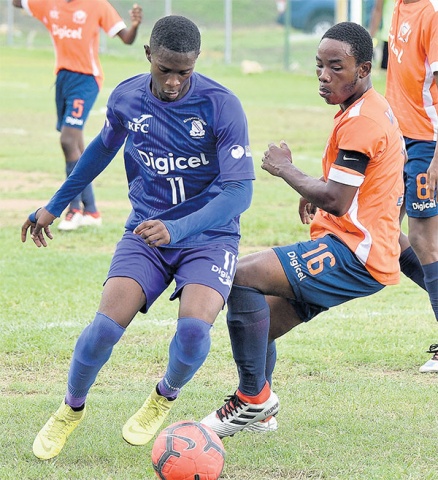
The Euphoric high of witnessing a perfect goal, the crushing low of an unexpected defeat – our favourite footballers have repeatedly taken us through countless emotions with every match we see of them, leaving us inspired and even unified as a result. Now, let’s look at what it’s like to actually be the ones on the field.
WHAT THE WORK INVOLVES
As a footballer, besides playing matches, you also spend hours in your weekdays, weekends and holidays:
• Training with your teammates to improve as an individual player and as a team, with the help of your coach.
• Exercising and following specific diets to stay in the best shape possible and prevent potential career-damaging injuries.
• Learning new strategies and techniques from coaches.
• Reviewing and critiquing past matches in order to improve your performance or anticipate how opponents will play in the future.
WHO IS THIS CAREER FOR?
The life of a footballer can be tumultuous and uncertain but, to many, it is a labour of love. To be a successful player, you need to:
• Have natural athletic ability, which includes excellent hand-eye coordination, speed, control over the ball and endurance.
• Be able to focus during games by mentally blocking out pressure from supporters, interpersonal problems with teammates, your own fear of failure/injury and more.
• Be willing to invest massive amounts of time and energy into training, thus devoting less time to yourself and loved ones.
• Be a team player who can trust, listen to, and act selflessly towards your teammates.
WHAT CAN I EARN?
Your football club may pay you a salary, which can change based on your level of experience and success. Locally, however, even if you do become a top player, you won’t be receiving the same income level as many of your international counterparts. Jamaicans tend to receive low-level salaries and may, thus, take up brand endorsements and/or do other jobs for extra income.
HOW DO I QUALIFY?
There’s no formal academic requirement you must meet to play professionally. However, studying physical education, food and nutrition and principles of business could be useful, as well as studying subjects that could prepare you for another career once you retire from playing. Moreover, you must maintain good grades to play on teams in high school or university which can, in turn, help you gain exposure to scouts.
WHO OFFERS TRAINING IN JAMAICA?
The University of the West Indies (Mona) offers scholarships, which involve access to a complete training programme, to talented athletes.
Continue reading for more on exciting careers for now and the future. Send your comments and suggestions to Angela deFreitas, general manager of CHOICES Career & Education Advice. Email: info@choicesonlinejm.com. Do the Career Key Test online at https://www.careerkey.org/career-tests/careerkeydiscovery/Caribbean-CHOI...
Information provided by CHOICES Career & Education Advice

